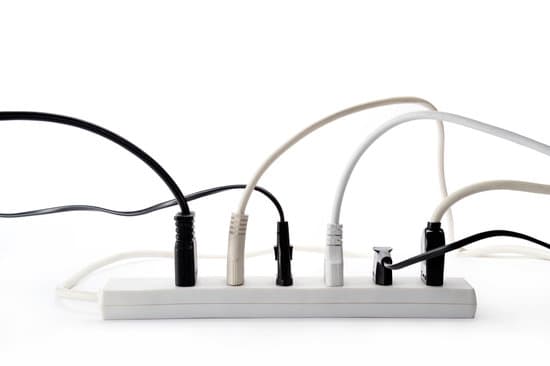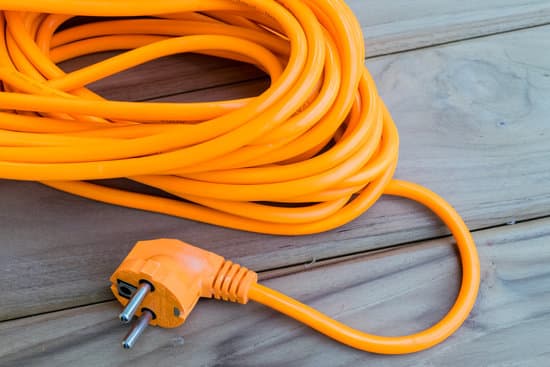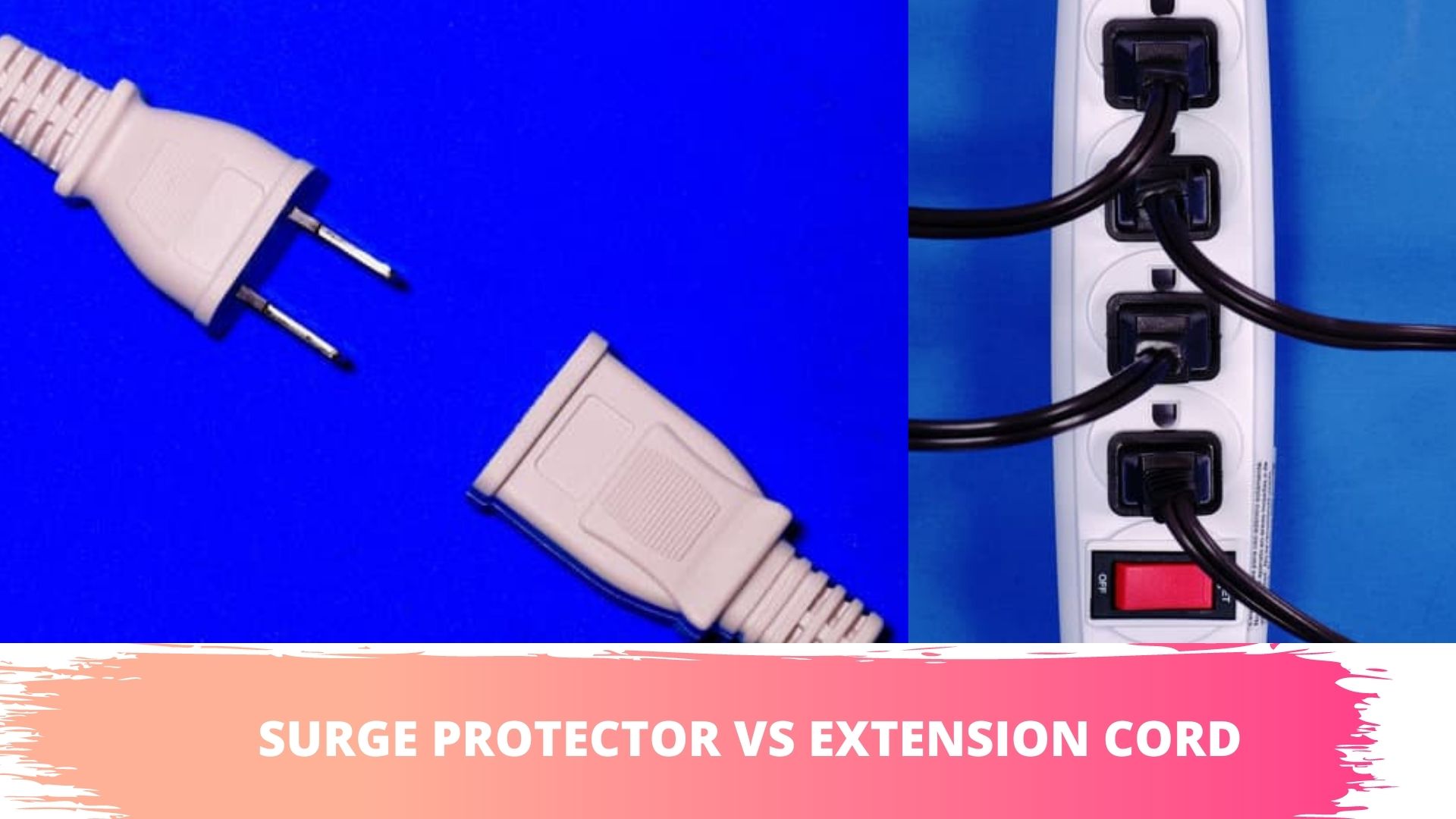The surge protector and Extension cord debate confuses a lot of people because they use those two terms interchangeably. What’s the difference between surge protector vs extension cord?
Surge protectors have multiple outlets, just like power strips but they also offer surge protection. Whereas extension cords have long cables that enable them to extend the reach of a wall outlet.
That is to say, they think that surge protectors and extension cords are the same. But they are not. And before you buy a power strip, you have to take a moment to determine whether it is a surge protector or an extension cord.
While they share many attributes, surge protectors provide certain defenses that you won’t find in extension cords. Extension cords, for their part, are not necessarily worthless. But they cannot offer the same protections as surge protectors.
This is why it is so important for consumers to learn to differentiate between the two. As you will soon realize, your decision will have a significant impact on the safety of your electronic equipment.
Is A Surge Protector The Same As An Extension Cord?
Surge protectors and extension cords have certain similarities. They are both power strips. Some models differ in design. However, the majority of surge protectors and extension cords consist of a series of sockets, a cable, and an electrical plug.
Both surge protectors and extension cords qualify as power strips.
A power strip is a device that has an electrical plug, a series of sockets, and a cable. You use it to power multiple gadgets and appliances with a single wall socket.
In that regard, you can probably understand why some people think that they are the same things. However, while they look similar on the surface, their objectives are different.
What Is the Difference Between A Surge Protector And An Extension Cord?
Three primary factors differentiate extension cords from surge protectors, namely:
1). Surge protectors have multiple-outlets!

Many of the surge protectors and extension cords you find on the market have a similar design. However, you can get extension cords in single-outlet or multiple-outlet formats.
This is technically true for surge protectors as well. That being said, the majority of surge protectors in your store have multiple outlets. In this regard, they have more in common with conventional power strips than extension cords.
A power strip’s central role is to multiply the number of outlets in the vicinity. A surge protector does the same thing. In fact, if a surge protector’s surge protection stops working, you can use it as an ordinary power strip. An extension cord with a single outlet cannot achieve this same objective.
2). Extension cords have a long cable

These two devices play completely different roles. Extension cords come in single-outlet formats because they are not designed to multiply your outlets. Rather, their job is to extend the reach of a wall receptacle.
This is the biggest difference between ordinary extension cords and power strips. Extension cords have a long cable. You can find power strips with long cables as well but that isn’t the norm.
People buy power strips because they want to increase the number of outlets. They buy extension cords whenever they need to bring an outlet closer.
3). Surge protector protects from spikes and surges
Surge protectors are designed to perform one specific function: they protect gadgets and appliances from spikes and surges.
Ordinary extension cords cannot do this. In other words, if you need surge protection, you should buy a surge protector. If you don’t need surge protection, you can stick with an extension cord.
4). Surge protectors are expensive
Between the two, surge protectors are more expensive. You can get extension cords for as little as $10, though the price can exceed $200 in some cases. You can also get a surge protector for a few dollars. However, some surge protectors have price tags as high as $1,200
Are Surge Protectors Safer Than Extension Cords?
It depends on the setting. You have three consideration to account for where safety is concerned, namely:
1). Surge protectors are best for surges!
When it comes to plugging your appliances into power strips, a surge protector is safer than an extension cord. Surges can occur for any number of reasons, including lightning strikes and faulty wiring. Some people have to defend against brownouts as well. If you want to protect sensitive gadgets, a surge protector is the safest option. A conventional extension cord cannot help you.
2). Extension cords are susceptible to Overloads
According to CroppMetcalfe, you can overload power strips, starting electrical fires in the process, by plugging too many appliances into a single power strip, plugging multiple power strips into a single wall receptacle, and using a power strip to feed power-hungry devices like refrigerators.
Extension cords are susceptible to these issues. This is technically true for surge protectors as well. However, some surge protectors have inbuilt overload protection features.
3). Extension cords are good for Daisy-Chaining
You shouldn’t daisy-chain power strips. The practice is hazardous regardless of whether you are using surge protectors or extension cords. However, if you must, you are better off daisy-chaining extension cords than surge protectors.
First of all, many experts believe that daisy-chaining can affect the surge protection abilities of the surge protectors in question. Secondly, if your daisy-chained extension cords have just one outlet, you are less likely to overload them.
Do Extension Cords Have Surge Protection?
Some extension cords have surge protection features. However, you must learn to identify the signs proving that an extension cord has surge protection.
- Extension cords with surge protection have feature words like ‘Suppression’ and ‘Protection’
- Some extension cords are clearly marked as surge protectors.
- If you can’t see these markings, look for the joule rating. Every surge protector has a joule rating that tells you the amount of energy it can absorb. If an extension cord has a joule rating, you can assume that it has surge protection.
Otherwise, in your search for an extension cord with surge protection, you may buy an extension cord that doesn’t have surge protection without realizing it.
Conclusion
The surge protector VS extension cord debate is important because they play different roles. Extension cords have long cables that enable them to extend the reach of a wall outlet. Surge protectors have multiple outlets, just like power strips. But they also offer surge protection.
You can get extension cords with surge protection features. But if you have to choose between the two, the surge protector is the better option because it protects appliances from surges and spikes.

